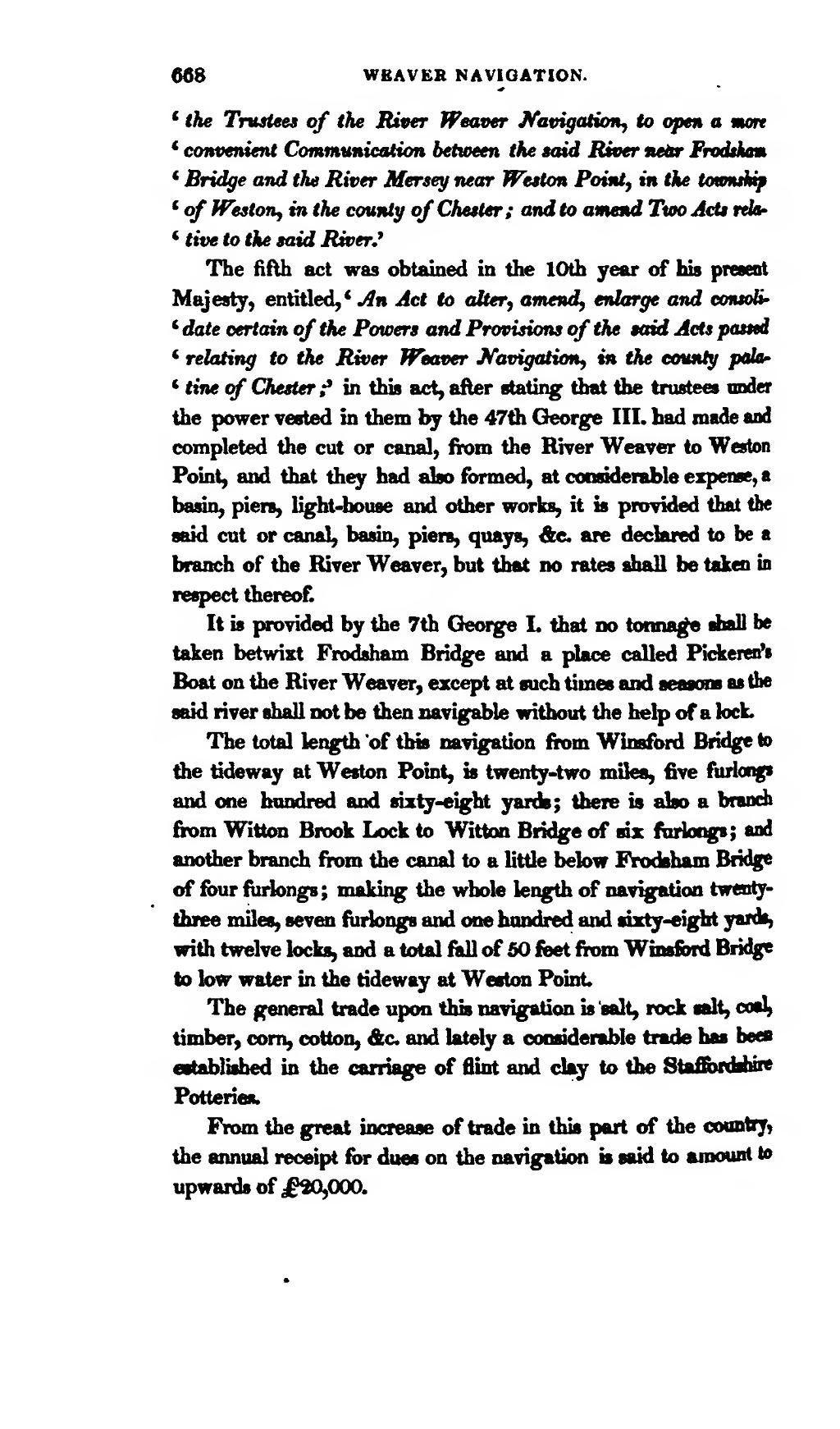'the Trustees of the River Weaver Navigation, to open a more convenient Communication between the said River near Frodsham Bridge and the River Mersey near Weston Point, in the township of Weston, in the counly of Chester; and to amend Two Acts relative to the said River' The fifth act was obtained in the 10th year of his present Majesty, entitled, 'An Act to alter, amend, enlarge and consolidate certain of the Powers and Provisions of the said Acts passed relating to the River Weaver Navigation, in the county palatine of Chester;' in this act, after stating that the trustees under the power vested in them by the 47th George III. had made and completed the cut or canal, from the River Weaver to Weston Point, and that they had also formed, at considerable expense, a basin, piers, light-house and other works, it is provided that the said cut or canal, basin, piers, quays, &c. are declared to be a branch of the River Weaver, but that no rates shall be taken in respect thereof.
It is provided by the 7th George I. that no tonnage shall be taken betwixt Frodsham Bridge and a place called Pickeren's Boat on the River Weaver, except at such times and seasons as the said river shall not be then navigable without the help of a lock.
The total length of this navigation from Winsford Bridge to the tideway at Weston Point, is twenty-two miles, five furlongs and one hundred and sixty-eight yards; there is also a branch from Witton Brook Lock to Witton Bridge of six furlongs; and another branch from the canal to a little below Frodsham Bridge of four furlongs; making the whole length of navigation twenty-three miles, seven furlongs and one hundred and sixty-eight yards, with twelve locks, and a total fall of 50 feet from Winsford Bridge to low water in the tideway at Weston Point.
The general trade upon this navigation is salt, rock salt, coal, timber, corn, cotton, &c. and lately a considerable trade has been established in the carriage of flint and clay to the Staffordshire Potteries.
From the great increase of trade in this part of the country, the annual receipt for dues on the navigation is said to amount to upwards of £20,000.
